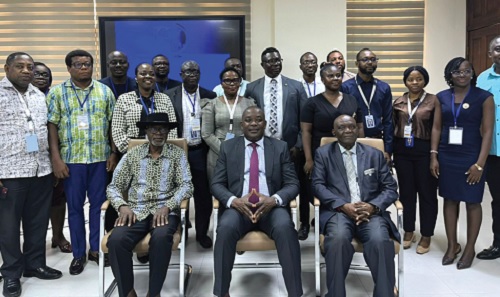The Ghana Tertiary Education Commission (GTEC) has launched the country’s first-ever national Open and Distance Learning (ODL) policy framework to regulate the delivery of distance education and safeguard its credibility.
The move comes in response to the growing spread of unapproved “mushroom centres” and increasing concerns about quality standards in higher education.
The policy is expected to serve as a guiding framework for integrating ODL into the mainstream tertiary education system while promoting access, equity and innovation.
Launch
Speaking at the launch of the framework in Accra yesterday, the Director-General of GTEC, Professor Ahmed Abdulai Jinapor, said distance learning could not be reduced to “distancing education”, where institutions simply replicated classroom activities in makeshift centres.
He said the commission had flagged 149 distance learning centres operating in spaces such as second-cycle schools, churches and public institutions that did not meet the required standards.
Prof. Jinapor said GTEC had issued a moratorium for those centres to phase out their operations and seek accreditation for facilities that were fit for purpose.
He explained that the new policy would provide a regulatory framework to address these gaps, ensuring that distance education becomes a credible and transformative mode of learning in the country.
He said the success of ODL would depend on collaboration between regulators, institutions, faculty, administrators, and quality assurance professionals.
He also emphasised that the policy represented a collective responsibility, saying, “Each of us has a role to play in ensuring that ODL is seen as a credible, rigorous and transformative pathway for teaching, learning and research in Ghana.”
Delivering a goodwill message, a Nigerian Emeritus Professor of Science Education and ODL pioneer, Prof. Olugbemiro Jegede, commended GTEC for taking what he described as a bold and forward-looking step.
He said countries, including Nigeria, continued to grapple with regulating mushrooming distance-learning institutions that threatened the credibility of higher education.
Prof. Jegede said while fake centres posed a challenge, their existence also revealed a high demand for education.
He advised the country to adopt a strategy that balanced firm regulation with opportunities for credible institutions to thrive.
Citing global examples, he said ODL was not a second-rate option but the norm in advanced institutions, with leading universities such as Oxford, Stanford and Harvard offering distance learning as a core part of their programmes.

